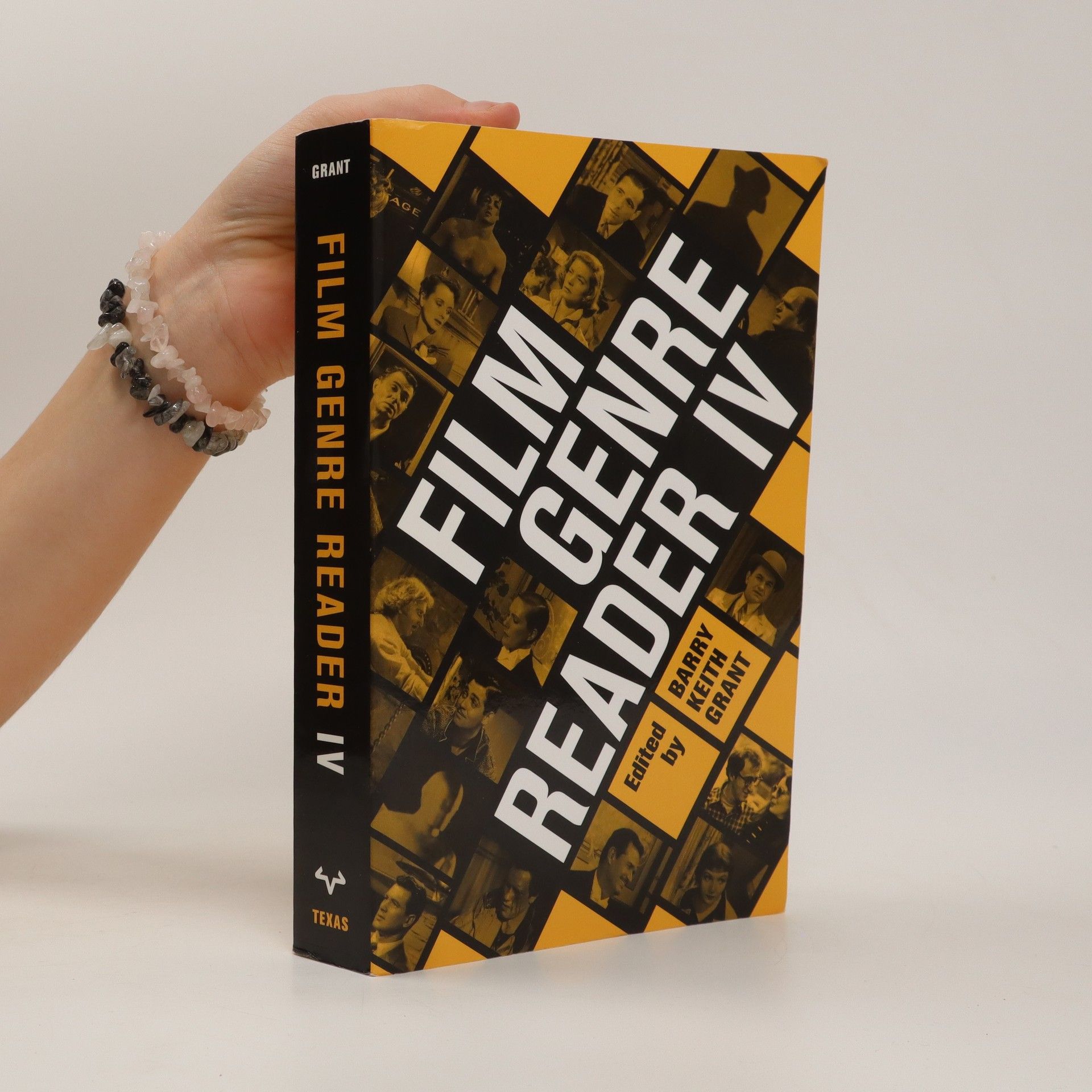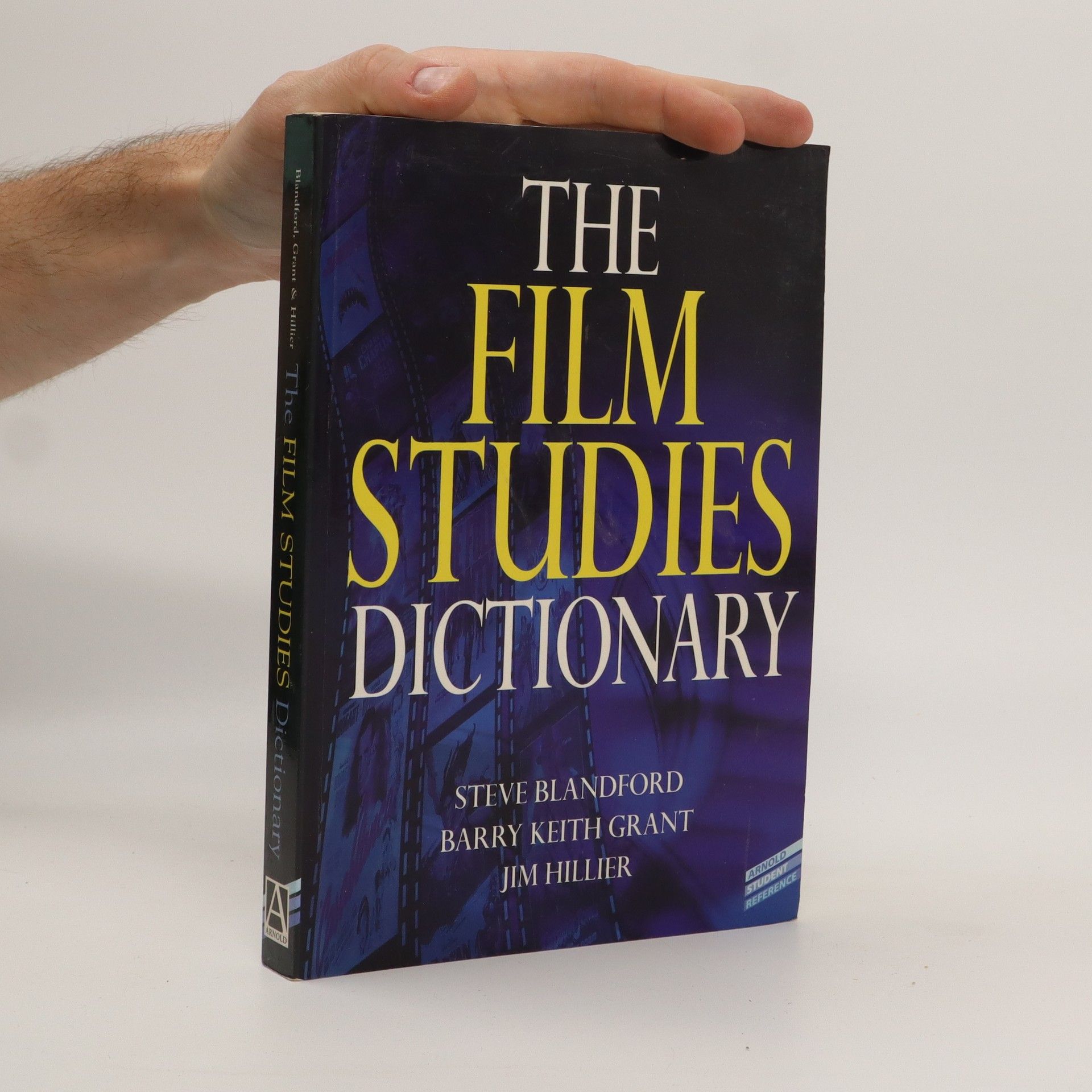an excellent new publication. The authors, with many years of experience in teaching and writing behind them, are well able to distill the material and present a coherent reference guide. Everything you would expect to find is here and it is difficult to argue with any of the definitions... authoritative but accessible definitions that every film student (and every film teacher) will gratefully seize.
Barry Keith Grant Livres
Barry Keith Grant est un éminent universitaire dont les travaux explorent le cœur de la culture populaire et du cinéma. Ses analyses critiques examinent les structures et les significations intégrées dans le cinéma de genre, offrant des perspectives éclairées sur la manière dont ces films façonnent et reflètent la compréhension sociétale. Les contributions éditoriales et auctoriales approfondies de Grant ont considérablement fait progresser l'étude du cinéma, rendant les concepts cinématographiques complexes accessibles à un public plus large.






Twilight Zone
- 132pages
- 5 heures de lecture
The book examines the significant impact of CBS's The Twilight Zone on American television and culture during its original airing from 1959 to 1964. It highlights how the series played a crucial role in transitioning science fiction, horror, and fantasy from niche genres to mainstream popularity. Barry Keith Grant places the show within the broader context of changing broadcast television and societal norms, emphasizing its lasting legacy as a seminal work in telefantasy.
Voyages of Discovery is the definitive account of Frederick Wiseman’s career, offering a comprehensive analysis of the work of the leading documentary filmmaker in the United States. In this updated edition, Barry Keith Grant adds new material exploring the documentarian’s works since the 1990s.
A guide to 100 of the most notable American horror movies by leading popular cinema expert Barry Keith Grant in the BFI Screen Guides series.
Invasion of the Body Snatchers
- 111pages
- 4 heures de lecture
With its paranoid plot of alien duplicates replacing average American folk, Invasion of the Body Snatchers was the first horror film to locate the monstrous in the everyday. Barry Keith Grant's comprehensive study traces the film's production and reception history, and explores themes of genre, communism and conformity and gender.
From reviews of the third edition: "Film Genre Reader III lives up to the high expectations set by its predecessors, providing an accessible and relatively comprehensive look at genre studies. The anthology's consideration of the advantages and challenges of genre studies, as well as its inclusion of various film genres and methodological approaches, presents a pedagogically useful overview." —Scope Since 1986, Film Genre Reader has been the standard reference and classroom text for the study of genre in film, with more than 25,000 copies sold. Barry Keith Grant has again revised and updated the book to reflect the most recent developments in genre study. This fourth edition adds new essays on genre definition and cycles, action movies, science fiction, and heritage films, along with a comprehensive and updated bibliography. The volume includes more than thirty essays by some of film's most distinguished critics and scholars of popular cinema, including Charles Ramírez Berg, John G. Cawelti, Celestino Deleyto, David Desser, Thomas Elsaesser, Steve Neale, Thomas Schatz, Paul Schrader, Vivian Sobchack, Janet Staiger, Linda Williams, and Robin Wood.
Exploring the intersection of gender and genre, the book delves into how American films engage in a continuous conversation about masculinity rather than merely reflecting societal crises. Barry Keith Grant analyzes a diverse array of genres, such as comedies, horror, and action films, revealing their role in shaping and negotiating cultural perceptions of masculinity. Through this lens, the work highlights the mythic functions of genre cinema in addressing complex issues surrounding gender identity.
The book explores the life and career of British filmmaker Ken Russell, known for his flamboyant and audacious style that challenged the norms of British cinema in the 1970s. It delves into his innovative blend of realism and fictional elements in biographical "docudramas," highlighting his early television work and notable films like Women in Love and Tommy. Russell's journey reflects both his artistic vision and the struggles he faced in securing funding later in his career. His candid interviews reveal his complex relationship with fame and criticism, offering insight into his unique cinematic approach.
Film Genre
- 249pages
- 9 heures de lecture
Offering an accessible introduction to the study of film genres and genre films, this book examines the use of genre in cinema from its beginnings to the present day.
Learn to believe in yourself and become more confident, with tried and tested tips and tricks from a master mind magician!